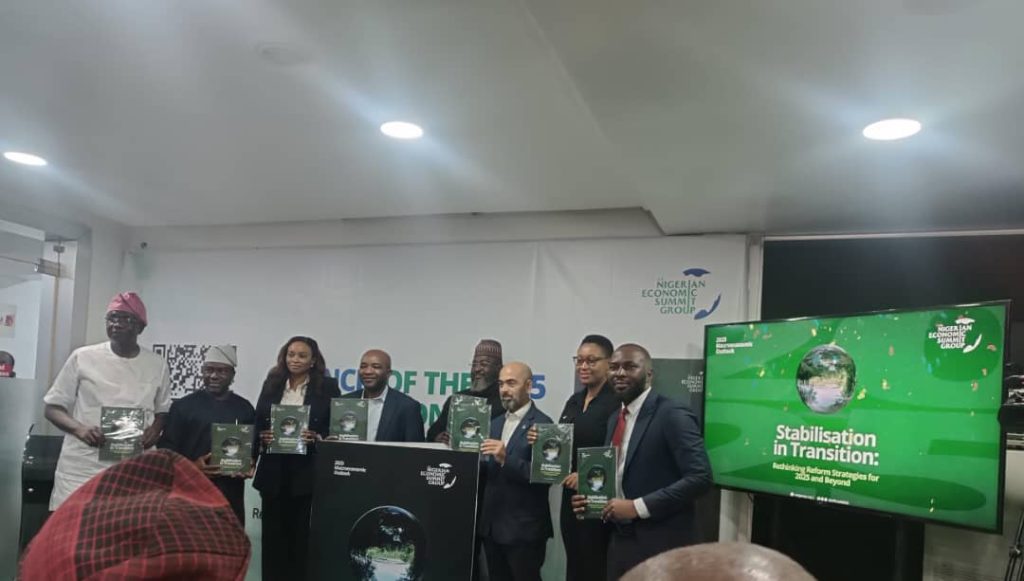Nigeria’s Untapped Economic Potential: A Path to 5.5% GDP Growth
The Nigerian Economic Summit Group (NESG) has projected a potential 5.5% growth in Nigeria’s Gross Domestic Product (GDP) by 2025, contingent on the sustained implementation of effective policy reforms. This optimistic outlook, presented during the launch of the 2025 Macroeconomic Outlook, highlights the significant untapped potential within the Nigerian economy, awaiting the right mix of strategic interventions to unlock its full capacity. Dr. Olusegun Omisakin, Chief Economist and Director of Research & Development at NESG, emphasized the importance of efficient policy reforms as the key driver for achieving this ambitious growth target. The projection suggests a significant departure from the current economic trajectory and underscores the necessity for a robust and focused approach to policy implementation.
This prospective growth hinges on several critical factors, including improvements in the business environment, infrastructure development, human capital development, and diversification of the economy. Addressing these areas requires a comprehensive strategy that fosters private sector investment, strengthens institutions, and promotes innovation. Nigeria’s vast human and natural resources, coupled with a growing consumer market, provide a solid foundation for accelerated economic expansion. However, translating this potential into tangible growth requires overcoming existing challenges such as insecurity, corruption, and infrastructural deficits.
The NESG’s projection underscores the urgency of implementing structural reforms that address these challenges and create an enabling environment for businesses to thrive. These reforms should prioritize macroeconomic stability, fiscal discipline, and investment in critical infrastructure. Furthermore, improving the ease of doing business, strengthening regulatory frameworks, and promoting transparency are crucial for attracting foreign investment and stimulating domestic entrepreneurship. A key aspect of achieving this growth trajectory lies in effectively harnessing the demographic dividend by investing in education, healthcare, and skills development, thereby equipping the workforce with the necessary skills to compete in a rapidly evolving global economy.
Diversification of the economy away from its reliance on oil revenue is another critical component of achieving sustainable growth. Developing the agricultural sector, promoting manufacturing and value-added industries, and leveraging the potential of the digital economy are essential for building a more resilient and inclusive economy. This diversification strategy should focus on creating opportunities in non-oil sectors, fostering innovation, and promoting value addition across various industries. By reducing dependence on volatile oil prices, Nigeria can build a more stable and sustainable economic foundation.
Achieving the 5.5% GDP growth target requires a collaborative effort between the government, the private sector, and civil society. Creating a conducive environment for public-private partnerships, fostering dialogue and consensus-building, and strengthening institutions are essential for effective policy implementation. Furthermore, transparent and accountable governance, coupled with robust anti-corruption measures, are crucial for building trust and attracting investment. The government must play a proactive role in facilitating private sector investment, promoting competition, and ensuring a level playing field for all businesses.
The NESG’s projection of 5.5% GDP growth by 2025 offers a glimpse into the immense potential of the Nigerian economy. Realizing this potential, however, requires a concerted and sustained effort to implement critical reforms, address structural bottlenecks, and create an enabling environment for businesses to flourish. The successful implementation of these measures will not only drive economic growth but also contribute to poverty reduction, job creation, and improved living standards for all Nigerians. The path to sustained economic prosperity requires a long-term vision, consistent policy implementation, and a commitment to building a strong and resilient economy.














